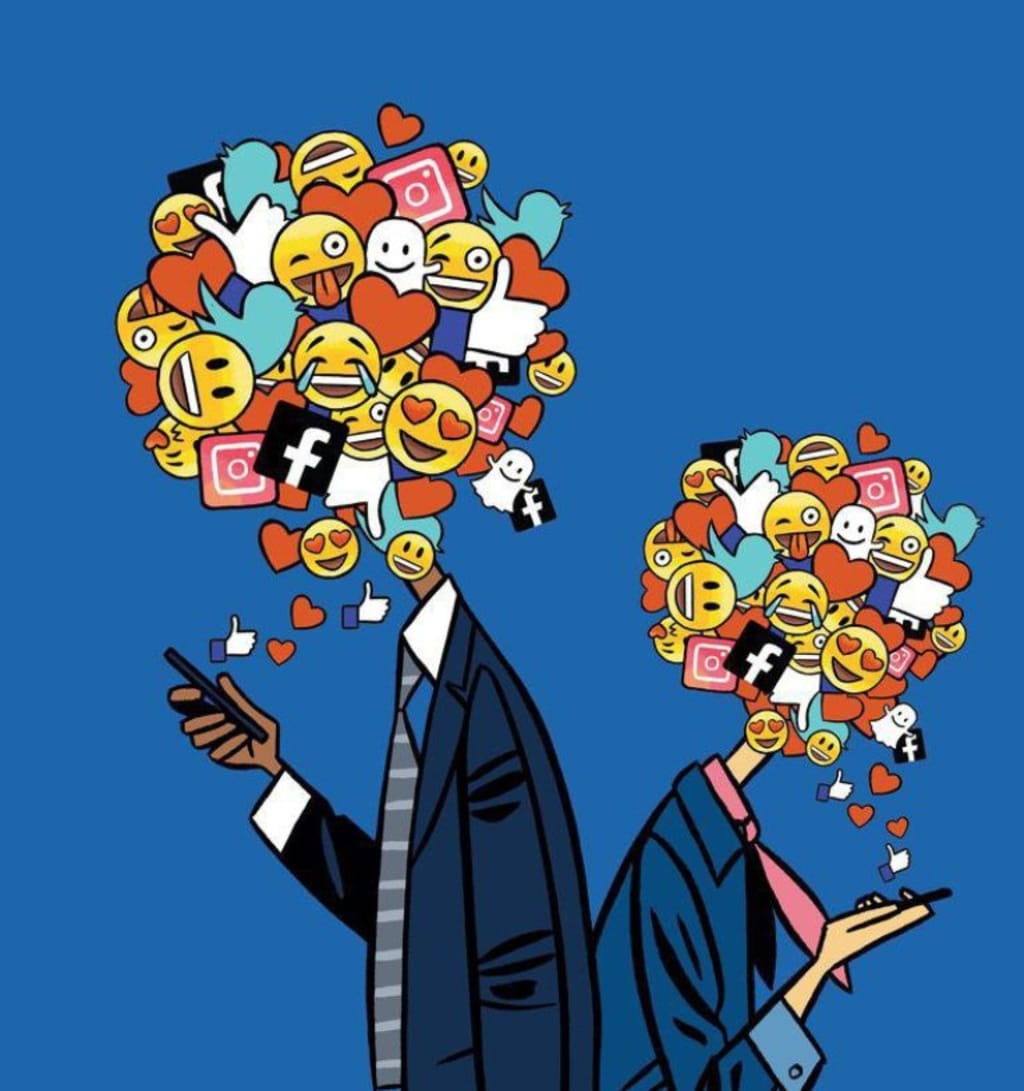
or perhaps even your family in the morning, each content to be in their own world and largely unaware of the reality around them if most human interaction is non-verbal what would happen?
I want you to start looking for something, and I promise you that once you start looking for it you won't be able to stop seeing it everywhere you go. I grew up in a time that is unique in that half of my childhood was spent without the major technology and platforms that seemed to rule parts of our lives today, and the other half of my childhood was quickly slingshotted into the new age of technology. Okay, I'm not quite a dinosaur yet, but I remember when I was growing up way back in the day, a prehistoric time before everyone had a cell phone and computers were named after the year they were made. In particular, human interaction appeared different during the earliest years of my upbringing.
If you wanted to talk to someone, you had to physically go out and locate them and spend the time you needed to talk to them in the same room. That level of presence practiced day in and day out created a different richness to human interaction with intricacies and nuances that seems to be slowly and gradually being lost as we move further into this new age of technological advancement and with the meteoric rise in popularity for social media.
There was nothing taking your attention elsewhere and nothing in the back of your mind reminding you that there are hundreds of other people sharing information that you might be missing out on that degree of presence
the rate of information technology development is exponential, and technology is still developing quickly. No one disputes the fact that social media and instant communication are highly addictive, and that these addictions share many of the same symptoms as substance abuse, but we're still unsure of how they actually affect us, especially when we're teaching algorithms to predict and modulate our behavior. What we don't yet fully understand is how these addictions alter not only our behaviors over time by hacking our positive reinforcement centers.
When we first started the social media experiment, we had a lot more experience with in-person interactions than we did with online interactions, so we used that experience to frame all of our technological interactions. However, now that we have hundreds or even thousands of friends, acquaintances, celebrities, and online personalities that we keep up with online, we have gradually replaced the majority of our interactions with being online. How do we prevent this from happening? Is the answer to shut it all down just to pull the plug on big tech? You can look at our increasingly divisive political discourse in modern times and see that we've already started to see the symptoms of a very binary interpretation of human interaction.
It's also concerning to think that our next generation's digital presence may end up being more important than their in-person presence. I don't believe it is. The reality is that we've unlocked Pandora's box, and this is the situation we find ourselves in. To move forward, the first step is to become aware of much of classical conditioning; if you're not sure what it is, click here.
It may be familiar to you that Pavlov's dogs is based on the less conscious brain mechanisms, but it also gives you some control over your behavior if you become aware of how the conditioning is affecting you. Beyond that, it's crucial to maintain a balance between in-person and digital interaction because you want your perspective on the world to be 100 percent based on human communication. subtle tonality body language emotion facial expression If we can maintain that balance, we can start to have a healthier relationship with our online presence and retain control over the influence these platforms and technologies have on us. These algorithms are based on human behavior and response, and that's something we have control over. It's what we were designed to do.
We can't let that practice atrophy because that's what creates our sense of identity and community that gives us a healthy view of others in the world. When your workday is over, spend some time with your family and friends and put your phone away. By doing this, you'll be fully present with those you're with and may even notice that the world isn't as crazy as it seems and that the life right in front of you is beautiful.
About the Creator
Emma
BBA in Marketing, Full time Freelancer
Hobby traveling, reading, observing, learn new thing,
Subscribe Please :)






Comments
There are no comments for this story
Be the first to respond and start the conversation.